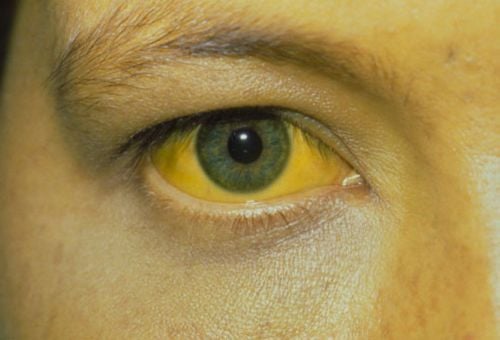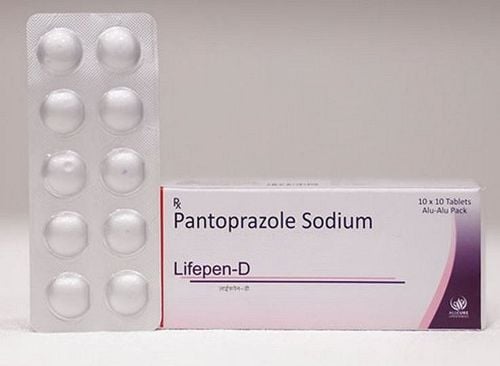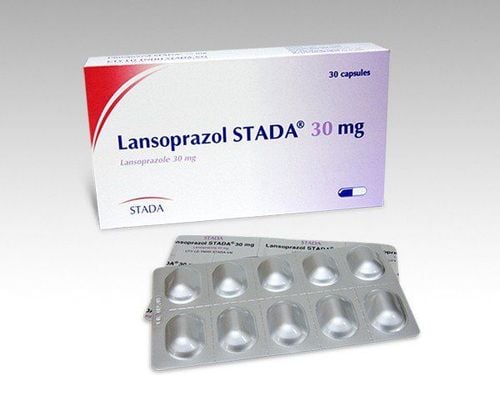This is an automatically translated article.
constant gas could be a sign of a digestive problem that you need to see and get checked out. So what is constant burping?
1. Why burp constantly?
gas is the result of chewing and swallowing food, air enters the body and then exits through the mouth. This is a normal physiological phenomenon, which can be caused by not chewing food thoroughly, eating too quickly, using carbonated drinks, consuming a lot of starchy, fatty and sweet foods. Sometimes burping is caused by the body being worried, stressed, stressed.
However, when you have constant burping, it could be a medical condition that needs to be treated. You can distinguish physiological belching from pathological belching based on the following characteristics:
Ợ physiological gas occurs when eating too fast, too full or spicy, sour, hot food. Heartburn is about 3-4 times in an hour and then goes away, with no heartburn or other symptoms. Ợ Pathological gas appears continuously throughout the day, often accompanied by heartburn, heartburn, gas, constipation, ...
2. Constant burping is a sign of what disease?
Gastroesophageal reflux is a condition in which the esophageal sphincter has decreased muscle tone combined with abnormal contractions of gastric motility, increasing gastric acid secretion and leading to gastric acid reflux into the esophagus. management, accompanied by intermittent belching.
In addition to burping, the patient also feels a burning sensation in the esophagus due to acid reflux. If left for a long time, the disease can cause nausea, burning pain in the epigastrium when belching. Acid reflux disease is common in pregnant women, people who are overweight, and have a weak stomach.
2.2 Stomach ulcers, gastritis many times can be a manifestation of peptic ulcer disease, a condition in which the lining of the stomach is eroded and there are serious ulcers. The cause is due to the increased secretion of gastric acid, which damages the lining of the stomach and esophagus, leading to inflammation.
In addition to continuous belching, when suffering from stomach ulcers, the esophagus will be accompanied by a number of other symptoms such as abdominal pain after eating, bloating, heartburn, ... Initially, these symptoms are usually not serious. important and often overlooked by patients. But if this condition is left untreated for a long time, it can lead to cancer.

Viêm loét dạ dày, thực quản có thể gây tình trạng ợ hơi liên tục
2.4 Lactose Intolerance Syndrome Lactose intolerance syndrome is a condition in which the body lacks an enzyme to break down or cannot digest lactose. If the person does not know they have this syndrome and drinks milk or consumes dairy products, then there will be constant belching because the lactose in milk is fermented in the stomach and produces gas. Lactose continues to enter the intestines and is not digested leading to abdominal pain and diarrhea.
2.5 Abnormal development of intestinal microbiota Increased secretion of gastric acid leads to abnormal development of intestinal microflora and causes disorders, affecting the digestive process. When food is not fully digested, it ferments and produces gas inside the stomach, leading to symptoms of constant belching, bad breath, or gas.
2.6 Other diseases In addition to the diseases mentioned above, frequent burping can also be one of the signs of the following diseases:
Digestive disorders: Heartburn accompanied by heartburn is often due to digestive disorders, especially the stomach and duodenum are having problems. Digestive disorders are not serious, but symptoms of the disease such as belching, heartburn will make you feel uncomfortable, the body tired. Hp infection: When infected with Hp will increase gastric acid secretion and cause constant belching. Hp symptoms such as belching can appear several times for a few minutes to a few hours, then disappear but quickly reappear. Pancreatitis: In the body, the pancreas helps the intestines digest food. When pancreatitis occurs, pancreatic function declines, affecting the digestive process and causing unpleasant digestive symptoms such as hiccups, belching, indigestion, bloating, vomiting, fever. Postnasal drip: In addition to digestive problems, postnasal drip also causes constant belching because the body regularly swallows large amounts of air. Stress: Stress is one of the factors that contribute to problems in the stomach and intestines, leading to excess gas and belching.

Căng thẳng, stress có thể gây ra tình trạng ợ hơi liên tục
3. How to treat constant burping
In order not to experience the above digestive problems and burp continuously, you need to pay attention to:
Eat slowly, chew food thoroughly: When chewing and swallowing food, eating slowly and chewing thoroughly will help limit bring gas into the stomach, avoid overloading the digestive system. Do not drink carbonated drinks: Carbonated soft drinks, beer can cause gas accumulation in the stomach and cause constant belching. In addition, drinks such as alcohol or coffee also cause the same condition. Do not eat pickled vegetables: Pickles, sauerkraut, pickled onions, ... or pickled vegetables contribute to bloating and lead to belching. Drink mint tea or leaves: When you have flatulence, a cup of ginger tea, chamomile tea or mint leaf juice can help you improve this condition, while promoting the health of the digestive system. Avoid stress: Anxiety, stress will make us breathe faster and swallow more air combined with increased gastric acid secretion will cause constant belching. So, try to limit stress in a variety of ways to avoid belching and other digestive problems. Do not use a straw when drinking: If you are belching, you should not use a straw when drinking because you may swallow more gas, instead, drink directly. Take a gentle walk after eating: This will help support the digestive system, avoid gas retention in the stomach and prevent bloating and belching. Quit the habit of smoking: Smoking is also one of the habits that make you swallow more gas in your stomach and cause belching. Therefore, to avoid belching, digestive problems and especially lung disease, it is necessary to give up this harmful habit. Take medication as directed by your doctor: Persistent gas due to excess stomach acid may need to be treated with medication to neutralize the acid. However, patients should consult a doctor to determine the appropriate medication and dose. Avoid buying and taking medicine on your own because it can cause some side effects.
slightly continuous will definitely affect your daily activities and in your work and life. At that time, the patient should see a doctor to determine the cause of belching, thereby treating the disease properly. But it's important to remember how often you burp as well as other accompanying symptoms for your doctor to make an accurate diagnosis.
Please dial HOTLINE for more information or register for an appointment HERE. Download MyVinmec app to make appointments faster and to manage your bookings easily.













